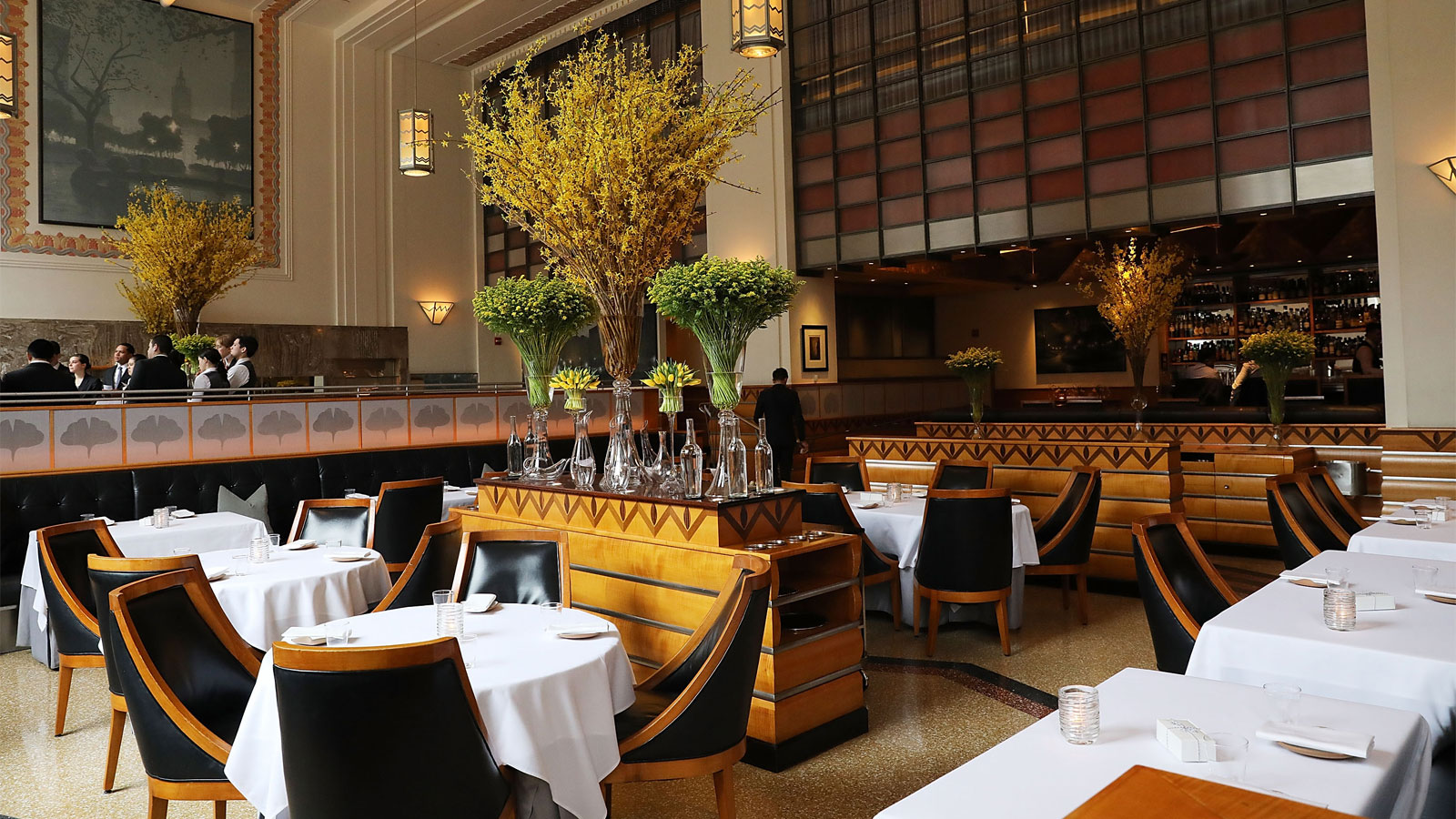In the first half of the 20th century, the Metropolitan Life Insurance Company built two skyscrapers just across the street from Madison Square Park in Manhattan. One of them is now home to Eleven Madison Park, widely considered one of the best restaurants in America, and the most prominent to announce its intentions to do something about climate change. The other tower, currently home to a luxury hotel, is the setting for science fiction author Kim Stanley Robinson’s dystopian 2017 novel, New York 2140, which takes place after catastrophic climate change has already arrived.
Eleven Madison Park doesn’t exist in the world of New York 2140, because the polar ice caps have melted, sending global sea levels up by 50 feet. All of Manhattan south of Central Park is now underwater, its famous grid of streets now a grid of canals. The lower floors of the Metropolitan Life Insurance Company’s towers have been hardened to keep the water out, and the upper floors have been converted into co-ops of tiny efficiency apartments for well-off professionals — lawyers, investment bankers, influencers.
The tower where New York 2140 is set is also an agricultural operation. There’s an open-walled farm floor on the upper level, supplying tomatoes, squash, and hydroponically grown greens for the co-op’s no-frills cafeteria. Pigs live on the farm, too, their meat available to any co-op resident motivated enough to personally raise and kill them. Salmon, trout, catfish, and clams grown in aquaculture cages in the body of water formerly known as Madison Square Park are another source of protein. The future New Yorkers of Robinson’s imagination have figured out how to live with climate change and how to eat relatively well in spite of it. The ones who can afford to live in one of the Met Life towers, anyway.
Back in the present day, Daniel Humm, the owner and executive chef of Eleven Madison Park, has been rethinking his restaurant’s legacy. Earlier this year, Humm began offering a radically different vision for how rich New Yorkers will change their diets in the face of climate change.
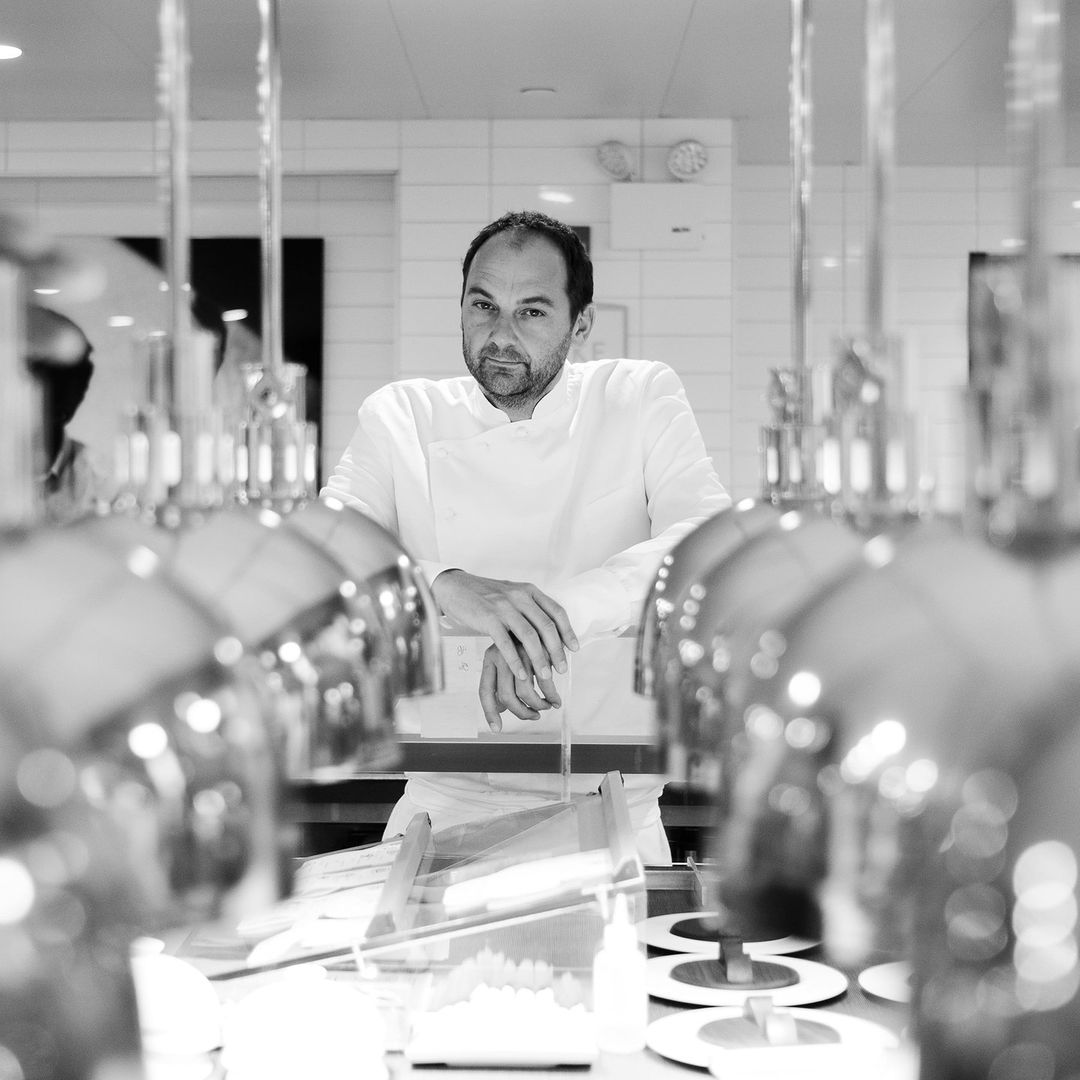
Humm made international headlines in May when he announced that his multiply-Michelin-starred fine dining restaurant would eliminate meat, fish, dairy, and eggs from its menu in the name of sustainability. “It became very clear to me that our idea of what luxury is had to change,” Humm told the New York Times. “We couldn’t go back to doing what we did before.” Humm has leaned into his new role as a climate luminary, recently appearing on a panel about sustainable luxury at the United Nations climate conference in Scotland.
I started trying to get a reservation at Eleven Madison Park almost immediately after Humm announced the change, when I was freshly vaccinated and bursting with YOLO energy. As a longtime pescatarian who eats mostly vegan at home, I was curious whether the menu change was a landmark moment in the mainstreaming of plant-based eating. Could Eleven Madison Park — “basically a teaching institution,” according to American food dignitary Ruth Reichl — inspire other fine-dining restaurants to ditch planet-warming animal ingredients? Would those changes then trickle down to more affordable, accessible restaurants, making a real dent in Americans’ unsustainable rate of meat consumption and helping to bend the emissions curve that currently points toward a waterlogged future?
In late September, a few days after the New York Times published a subtly scathing review of Eleven Madison Park’s new menu, I finally locked down a reservation for me and my godmother, a meat-eater who loves trying vegan restaurants. Eleven Madison Park makes you pay in advance, and six courses for two people, including wine pairings and service, ran to $540 before tax. (Disclosure: Although I booked the reservation with the intention of paying for it out of pocket, Grist ultimately reimbursed me for my half of the meal; I in turn paid for half of my godmother’s half of the meal.)
Two hundred seventy dollars per person represents one of Eleven Madison Park’s more affordable options, the bar tasting menu with regular wine. The 10-course dining room tasting menu costs $335 per person before tax for the food, plus $175 to $335 for wine, depending on whether you want regular or “reserve” wine. I took some solace, I guess, in the claim that Eleven Madison Park provides five free meals for food-insecure New Yorkers for every dinner purchased at the restaurant.
On the night of our reservation, after we were seated beneath the bar room’s low ceiling printed with a panorama of a starry night sky, our primary server told us three things. The first was that Eleven Madison Park’s menu was not strictly vegan — the restaurant still offered milk and honey with its coffee and tea service. “And this chair is leather,” the server quipped. He looked to be about Greta Thunberg’s age, as conciliatory as she is defiant but every bit her equal in preternatural poise.
The second was a brief history of the building, which the Metropolitan Life Insurance Company began constructing in 1929, intending for it to be taller than the Empire State Building. The Great Depression threw a wrench into those plans, and as a result the building has more elevator shafts than it does floors, he said. (Talk about a stranded asset!)
The third was that wine pairings amounted to about a bottle of wine per person.
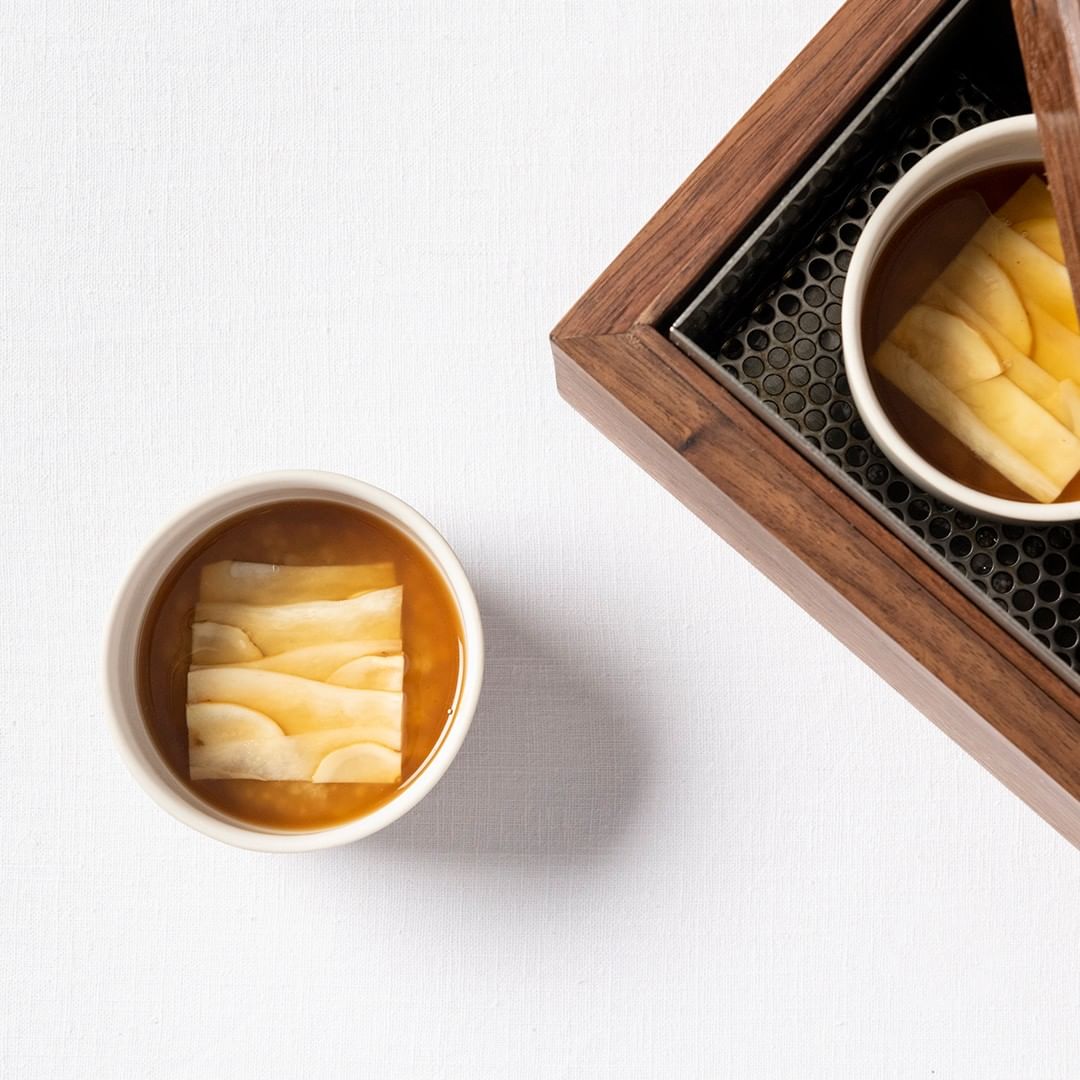
The menu changes daily, according to the seasons and what’s available, and each course strengthened my impression that the menu was a haute riff on the relatable experience of desperately trying to get through an autumn CSA box before all the vegetables start rotting.
The first dish was a tiny bowl of rice porridge with a mix of mushrooms, topped with a couple of sheets of tofu skin and a drizzle of matsutake mushroom oil. Each grain of rice had been polished to order, according to the server who presented the bowls. (This was the start of a parade of deft, detail-oriented servers supplying bon mots and fun facts about the ingredients and wine pairings.) The porridge was bracing, like a shot of umami straight to my sinuses.
As I sipped the wine paired with the first course, a pleasantly prickly crémant de Bourgogne, I glanced around the bar area, pegging my fellow patrons as a mix of bank people and tech people and creatives, some of them in their natural habitat and others clearly out for a special occasion. The men wore suits or zippered sweaters; the women wore well-tailored blazers. At one point, a group of four handsome, wealthy-looking Boomers strutted into the bar area, commanding my attention with their utter ease in an environment I found intimidating; they ordered a drink at a bar and then were escorted to their place in the high-ceilinged dining room.
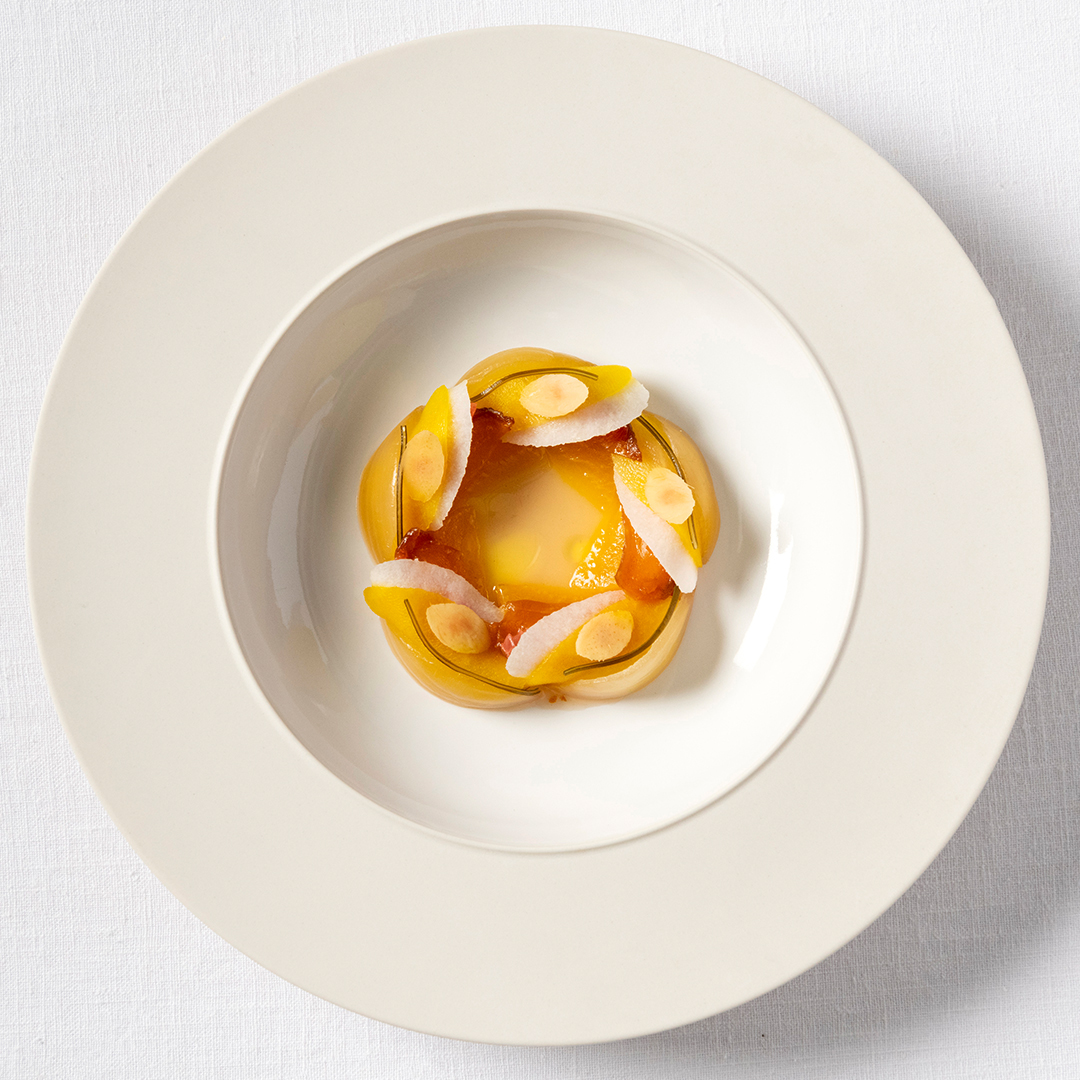
The second course was a salad of pickled and roasted golden beets with jícama and grapefruit, served with a Riesling. The salad offered, oddly, more umami, only less jolting this time — the pickled beets tasted straightforwardly salty. The third course was a caviar imitation made out of seeds that burst and crackled pleasantly in my mouth, served on a base of almond cream and puréed squash. It would have been stunning — transcendent, even — if it hadn’t come on the heels of two courses hitting many of the same flavor notes.
The fourth course, “several preparation of kohlrabi,” came with two bites of sesame tofu — a smooth, subtly sweet godsend. But the kohlrabi and tofu came in a puddle of dashi so briny I couldn’t finish it, though I did finish the paired Chardonnay.
At this point, I should have been worried, and not only for the long-term well-being of my tongue’s salt receptors. The signs were staring me in the face that six courses were not going to be enough food to sustain a human adult for an evening. The only substantive things I had put in my mouth so far were a few spoonfuls of rice, almond cream, and sesame tofu, plus one and a half outstanding croissant-like rolls slathered with a satisfying butter imitation made from sunflower seeds. (A businesslike member of the waitstaff silently cleared the other half of the roll before I could finish it.)
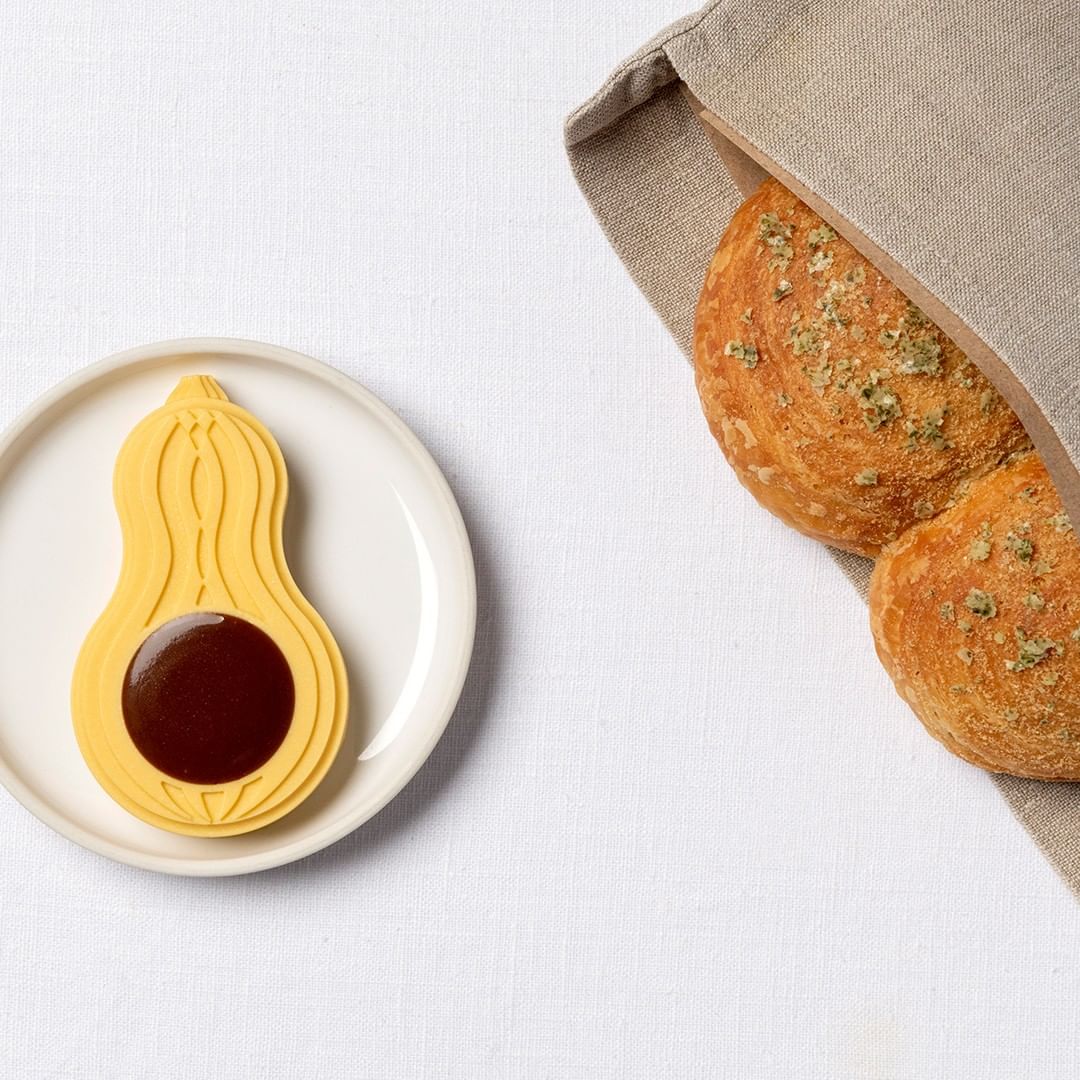
However, I was not worried, because I had already drunk about four glasses of wine on what was for all intents and purposes an empty stomach. (The wine was getting to other people in the bar area, too. A man left his chair and sidled to the booth across the table to canoodle with his date; he looked a little chastened and dutifully returned to his seat when the servers appeared with the next course.) Between the wine, the world-class service, and the atmosphere — a lively jazz soundtrack played at the perfect volume to allow conversation, dim lighting calibrated to flatter — I felt deeply content.
And so when the final savory course arrived — a small deep-fried purse of cabbage leaves stuffed with a few pistachios — it did not register to me as the metabolic disaster it was. I was too tipsy to fully grok the problem with eating five tiny courses made almost entirely of vegetables — and relieved to discover that the cabbage dish presented a break from the aggressive saltiness of the preceding courses, with a pleasantly toasty aroma and a refreshingly spicy pepper sauce. The dessert courses — a tiny bite of grape granita next to a tiny bite of coconut kulfi, and a sesame-flavored chocolate in the shape of a pretzel, each served with its own drink pairing — only exacerbated the imbalance between alcohol and food.
Kim Stanley Robinson, in imagining the future of rich people eating in the Metropolitan Life Insurance Company’s former towers, accounted for the fact that human beings need protein to survive. The same thought does not appear to have occurred to Daniel Humm. My meal at Eleven Madison Park had all the trappings of “luxury.” It ended with a gift bag containing a canister full of granola and a complimentary bottle of housemade vermouth at the bar, where the bartender explained that the restaurant has a no-tipping policy because it’s “hospitality-based.” But no amount of hospitality, no matter how skilled, can make up for a lack of macronutrients. Finding my local pizza slice place closed when I got off the subway, I ended the night by frying up a few Field Roast vegan breakfast sausages, which sadly did not provide enough sustenance to prevent a debilitating hangover the next day.
Waking up to a crushing headache, I found myself wondering whether I had misunderstood what the Eleven Madison Park bar tasting menu was even supposed to be. Is it possible it was meant to be a two-hour, six-course, $270-per-head snack? Should I have scheduled in time to get a cheese-stuffed mushroom burger at the Madison Square Park Shake Shack afterwards? I wanted to ask Humm, but he declined an interview via a publicist, who didn’t respond to my email asking what Humm thinks about the role of protein in the plant-based menu.
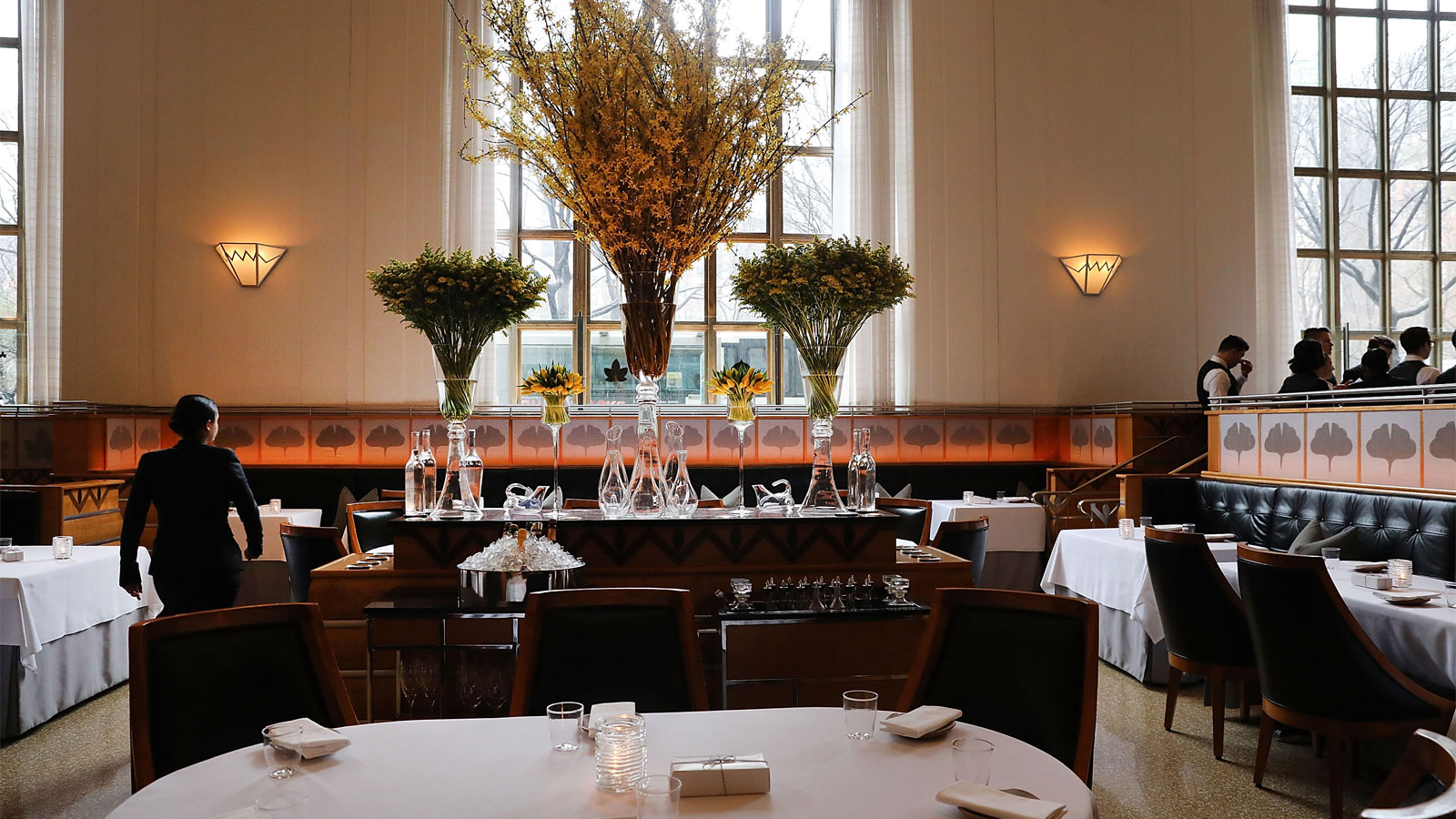
“How do you get enough protein?” is a question every vegan has fielded. The answers are abundant, even before you get to the increasingly realistic processed meat substitutes made by the likes of Impossible Burger. Beans, lentils, nuts, tofu, tempeh, and seitan are all amazingly versatile sources of plant-based protein. They can be whipped or seasoned into hearty meat, dairy, and egg substitutes or prepared simply and allowed to shine on their own. I hope Humm adds more of them to his menu, if Eleven Madison Park’s style of vegan cooking is going to trickle down to the mainstream.
The widespread adoption of plant-based eating in America will come one way or another — whether by choice, before increasingly severe drought and floods make meat too expensive for most people to afford, or by necessity, afterwards. Humm is clearly gunning for Westerners to make the transition sooner rather than later: A couple of weeks after I ate at Eleven Madison Park, Humm conspicuously parted ways with the restaurant at Claridge’s Hotel in London over his vegan vision. A Claridge’s insider told the Daily Mail, “if they turn the restaurant vegan, they will upset thousands of regular guests.” A defiant Humm replied on Instagram, “The future for me is plant-based.” Humm is clearly right on the merits. But after eating Humm’s particular approach to plant-based cooking at Eleven Madison Park, I wondered if Claridge’s primary concern wasn’t that guests leave angry but that they leave hungry.

